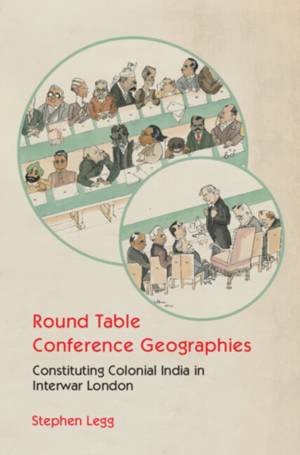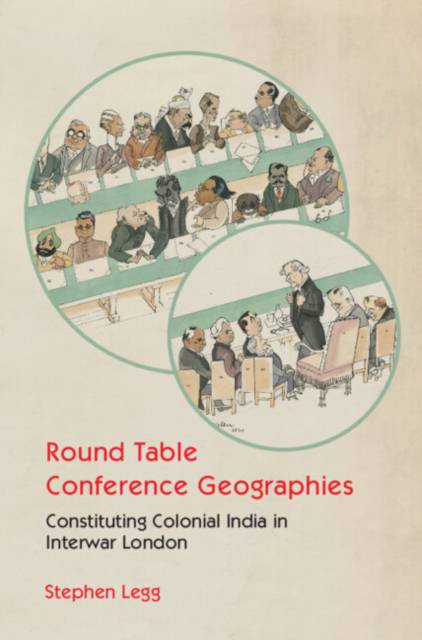
- Afhalen na 1 uur in een winkel met voorraad
- Gratis thuislevering in België vanaf € 30
- Ruim aanbod met 7 miljoen producten
- Afhalen na 1 uur in een winkel met voorraad
- Gratis thuislevering in België vanaf € 30
- Ruim aanbod met 7 miljoen producten
Zoeken
Round Table Conference Geographies
Constituting Colonial India in Interwar London
Stephen Legg
Hardcover | Engels
€ 172,95
+ 345 punten
Omschrijving
Round Table Conference Geographies explores a major international conference in 1930s London which determined India's constitutional future in the British Empire. Pre-dating the decolonising conferences of the 1950s-60s, the Round Table Conference laid the blueprint for India's future federal constitution. Despite this the conference is unanimously read as a failure, for not having comprehensively reconciled the competing demands of liberal and Indian National Congress politicians, of Hindus and Muslims, and of British versus Princely India. This book argues that the conference's three sessions were vital sites of Indian and imperial politics that demand serious attention. It explores the spatial politics of the conference in terms of its imaginary geographies, infrastructures, host city, and how the conference was contested and represented. The book concludes by asking who gained through representing the conference as a failure and explores it, instead, as a teeming political, social and material space.
Specificaties
Betrokkenen
- Auteur(s):
- Uitgeverij:
Inhoud
- Aantal bladzijden:
- 414
- Taal:
- Engels
Eigenschappen
- Productcode (EAN):
- 9781009215312
- Verschijningsdatum:
- 11/05/2023
- Uitvoering:
- Hardcover
- Formaat:
- Genaaid
- Afmetingen:
- 158 mm x 236 mm
- Gewicht:
- 635 g

Alleen bij Standaard Boekhandel
+ 345 punten op je klantenkaart van Standaard Boekhandel
Beoordelingen
We publiceren alleen reviews die voldoen aan de voorwaarden voor reviews. Bekijk onze voorwaarden voor reviews.







